Chrysalis (2004)
Gênero : História, Drama
Runtime : 1H 47M
Director : Sashi Kumar
Sinopse
A Sikh woman and her son take refuge in a convent during the 1984 anti-Sikh pogroms

O sonho de Jesminder Bhamra é seguir o caminho de seu ídolo David Beckham e se tornar uma jogadora profissional de futebol. Entretanto ela enfrenta problemas em sua família, que deseja que ela siga os costumes indianos tradicionais, assim como sua irmã mais velha, Pinky. O confronto entre as partes chega ao ápice quando Jesminder é obrigada a escolher entre a tradição de seu povo e seu grande sonho.
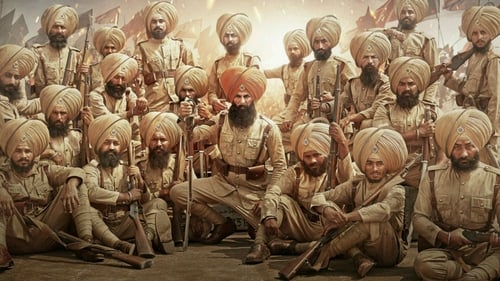
Baseado numa incrível história verdadeira da Batalha de Saragarhi, na qual um exército de 21 Sikhs lutou contra 10 mil afegãos em 1897.
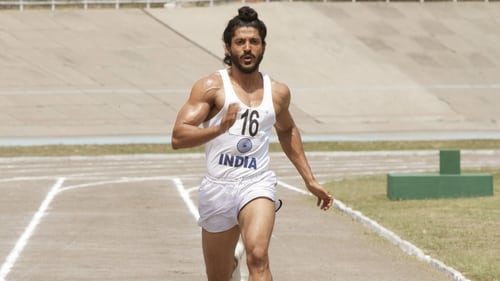
A verdadeira história do "Flying Sikh" - vice campeão mundial e olímpico Milkha Singh. Que superou o massacre de sua família, guerra civil durante a partição entre Índia e Paquistão, e a falta de moradia para se tornar um dos atletas mais emblemáticos da Índia. O filme começa nos Jogos Olímpicos de 1960 em Roma, onde um treinador diz "Bhaag Milkha Bhaag!" Milkha (Jarhan Akhtar) começa a correr, e teria ganho facilmente, se ele não olhasse para trás quando ele se aproxima do fim da corrida. O olhar para trás, custa-lhe o bronze. Em um flashback, então, a história remonta à sua infância. Vemos como sua infância feliz chega a um fim abrupto quando a terra em que ele e sua família viveram torna-se uma parte do novo Paquistão.

The film revolves around a Hindu man (Paresh Rawal) who goes through an identity crisis when he discovers he was adopted as a son in a Hindu family but was born in a Muslim family. The journey starts with finding his real father.

Set in post-colonial India, Qissa tells the story of Umber Singh, a Sikh who is forced to flee his village due to ethnic cleansing at the time of partition in 1947. Umber decides to fight fate and builds a new home for his family. When Umber marries his youngest child Kanwar to Neeli, a girl of lower caste, the family is faced with the truth of their identities; as individual ambitions and destinies collide in a struggle with eternity.

Amu is the story of Kaju, a twenty-one-year-old Indian American woman who returns to India to visit her family and discover the place where she was born. The film takes a dark turn as Kaju stumbles against secrets and lies from her past. A horrifying genocide that took place twenty years ago turns out to hold the key to her mysterious origins.

As a Sikh man with a full beard and turban, AMRIT SINGH is often the target of racial profiling. But when he sees his dreams of becoming Chief of Surgery at a state-of-the-art transplant center dwindle because of his appearance, Amrit goes against a tradition he's maintained his whole life and cuts his hair. Hiding this decision from his girlfriend and family in Toronto is only the start of a series of compromises Amrit finds himself making as he deals with hospital politics and health care injustices. When his compromises result in the death of a patient, Amrit begins to reexamine the value of the religious traditions he'd turned his back on.
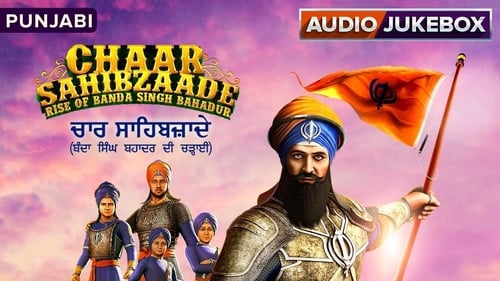
Chaar Sahibzaade is the first photo realistic' 3D animation film in S-3D on Sikh history. It is the real story of the sacrifices of the four sons of Guru Gobind Singh ji (tenth guru of Sikhs)- Baba Ajit Singh ji, Baba Jujhar Singh ji, Baba Zorawar Singh ji and Baba Fateh Singh ji.

Nanak Shah Fakir is a biographical film on the life and teachings of the first Sikh guru, Guru Nanak Dev.

Raj é um jovem indiano apaixonado por hóquei, mas seu pai acha que o esporte é besteira e quer que ele se envolva nos negócios da família. Ao encontrar um técnico para seu time, Raj precisa mostrar seu valor para os adversários e para o pai.
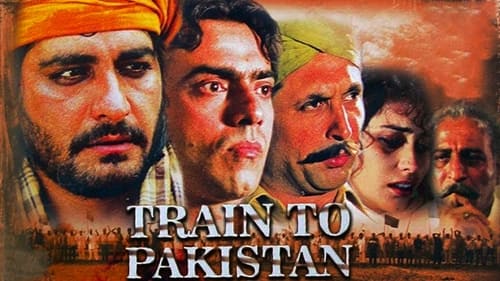
Tensions run high near the border of British India, which is about to be partitioned with a new country called Pakistan. Sikhs living in this border town have heard numerous stories of Muslims killing, raping, and looting other Sikhs, Hindus, and Christians, and many of whom are their friends and relatives. Enraged at the loss of law and order, they plan their own attack on a trainful of Muslims leaving British India. The train is overcrowded with tens and thousands of migrating passengers, who are even perched on the windows and seated on the roof of this train. The plot is to tear the bridge down when the train is on it, and no one will dare stop these men to carry out this horrific task

A small town girl gets more culture, adventure, romance in the big city. To make it through is coming up with elaborate schemes 2 beat the odds.Urban Turban is a movie that gives u many different flavors mixed together a cross cultural stew of Kiwi urban life.
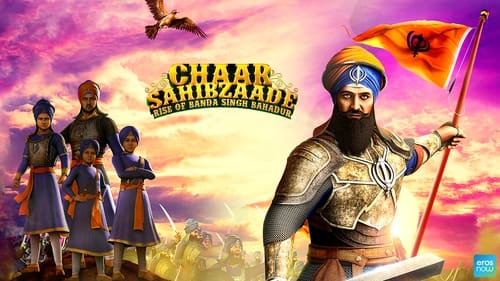
Chaar Sahibzaade: Rise of Banda Singh Bahadur Animation movie A profound and courageous story on how Guru Grace changed Banda Singh Bahadur in and out and enabled him to lead Sikh army to Punjab province to establish righteousness and equality in the state and to punish the Mughals who killed four sons (Chaar Sahibzaade) of Sri Guru Gobind Singh JI along with thousands of innocent Sikhs and Hindu's, under their slaughterous rule

The movie tells the story of Sharon Gill, a modern-day Canadian Sikh graduate student who travels to India as part of her thesis on minorities at war. Revelations about the past soon leave the student curious for more information, and Gill's awareness changes after maneuvering into prison to interview Kartaar Singh. Singh is a hockey player whose life experiences lead him to fight against corruption in the police and government systems. The film's central story is based around Kartaar Singh's journey which is filled with courage, perseverance, and faith.

Sundri is based on a novel by the same name - Sundri by the famous Punjabi writer, Bhai Vir Singh (1872-1957). It is based on a popular folk song of the Punjab and is set in the historical period of Mir Manu that is notorious for large scale massacre of the Sikhs during the period 1748-1753. Sundri is a symbolic representative of that period and the daring nature of the Khalsa people. The Mughal leadership was bent upon annihilating the Sikhs. The rulers were corrupt and engaged in the systematic forced conversion of the non-Muslim people. The management of the government was in the hands of Nawabs and bandit who were grossly unfair, discriminatory, lustful and tyrannical.














